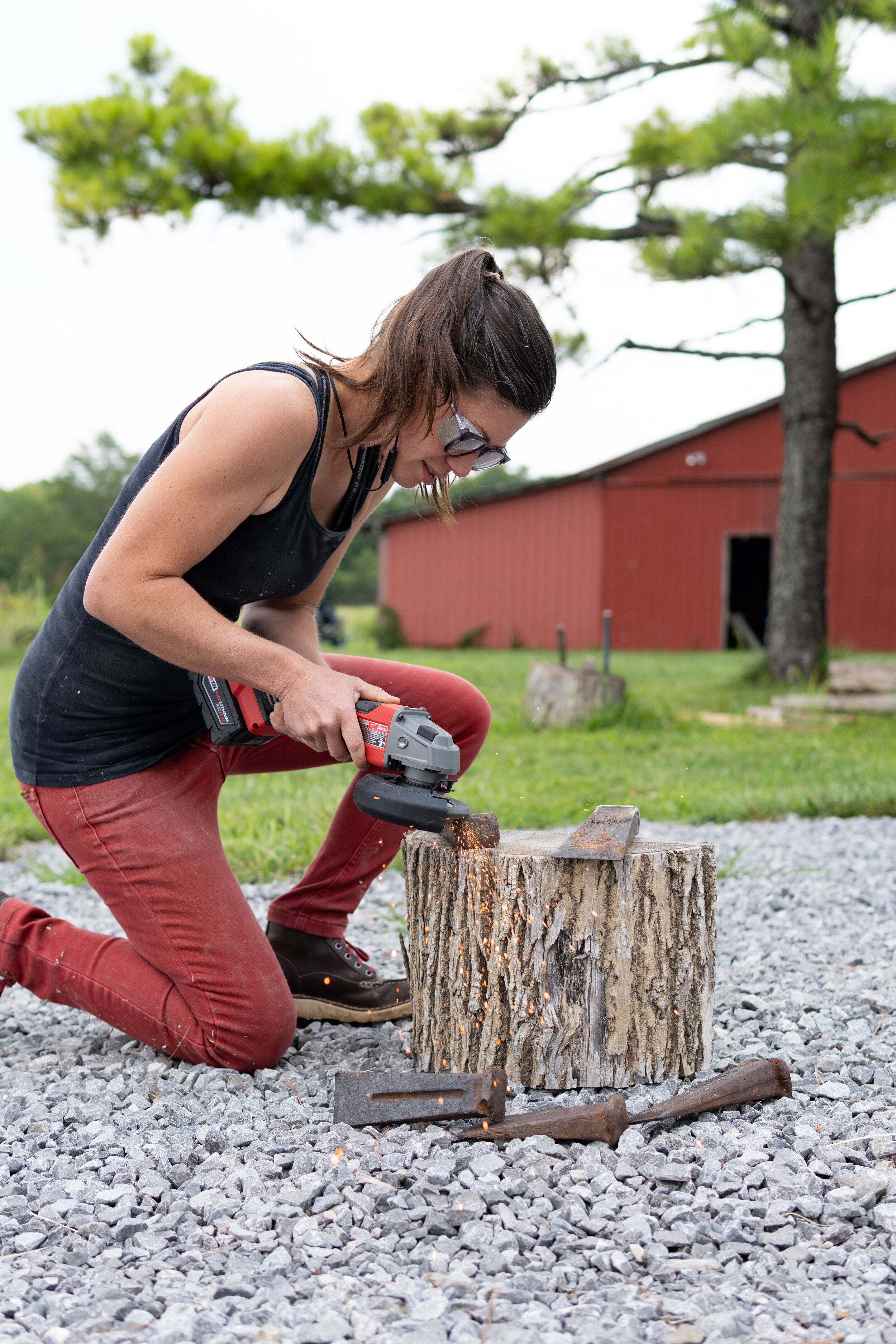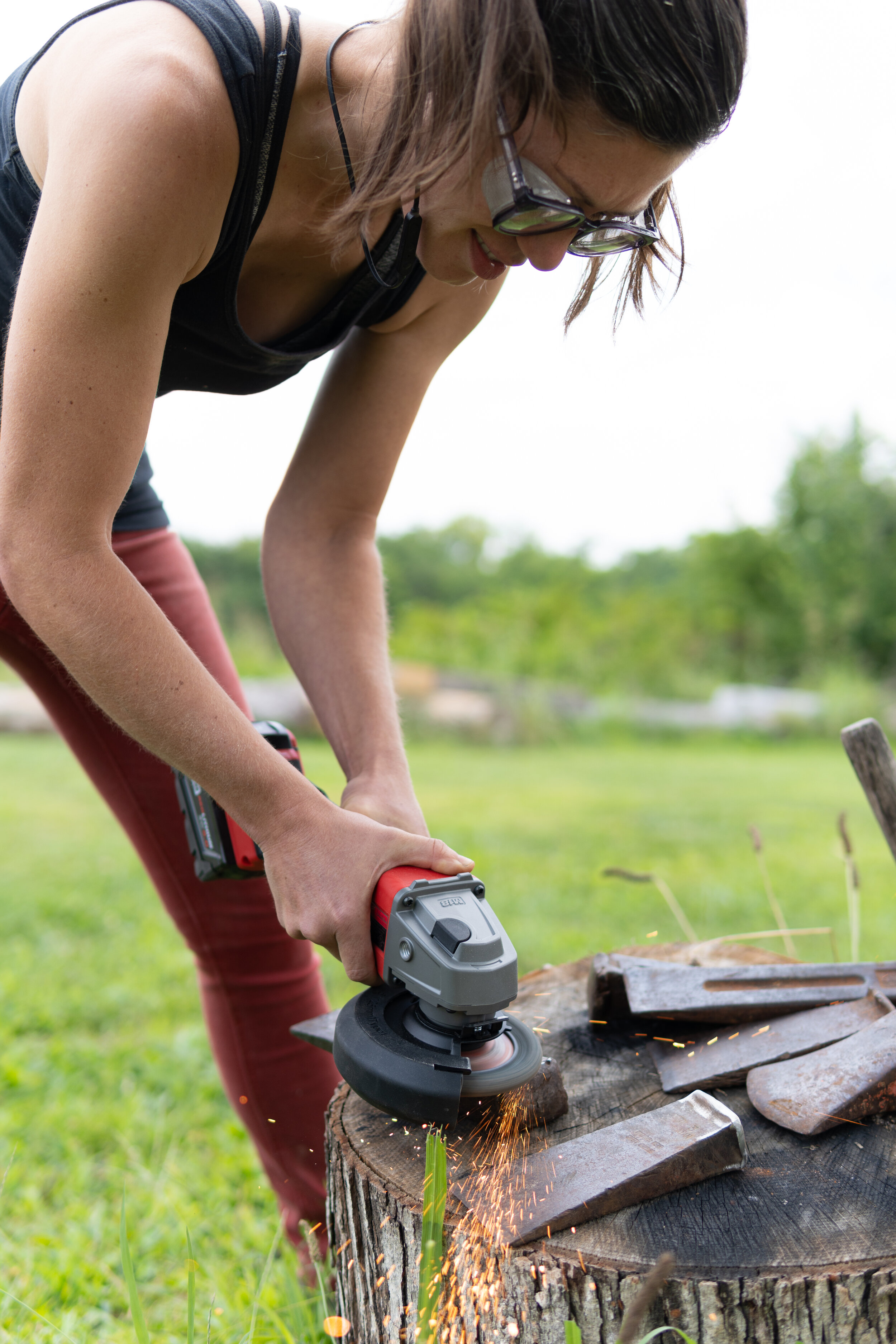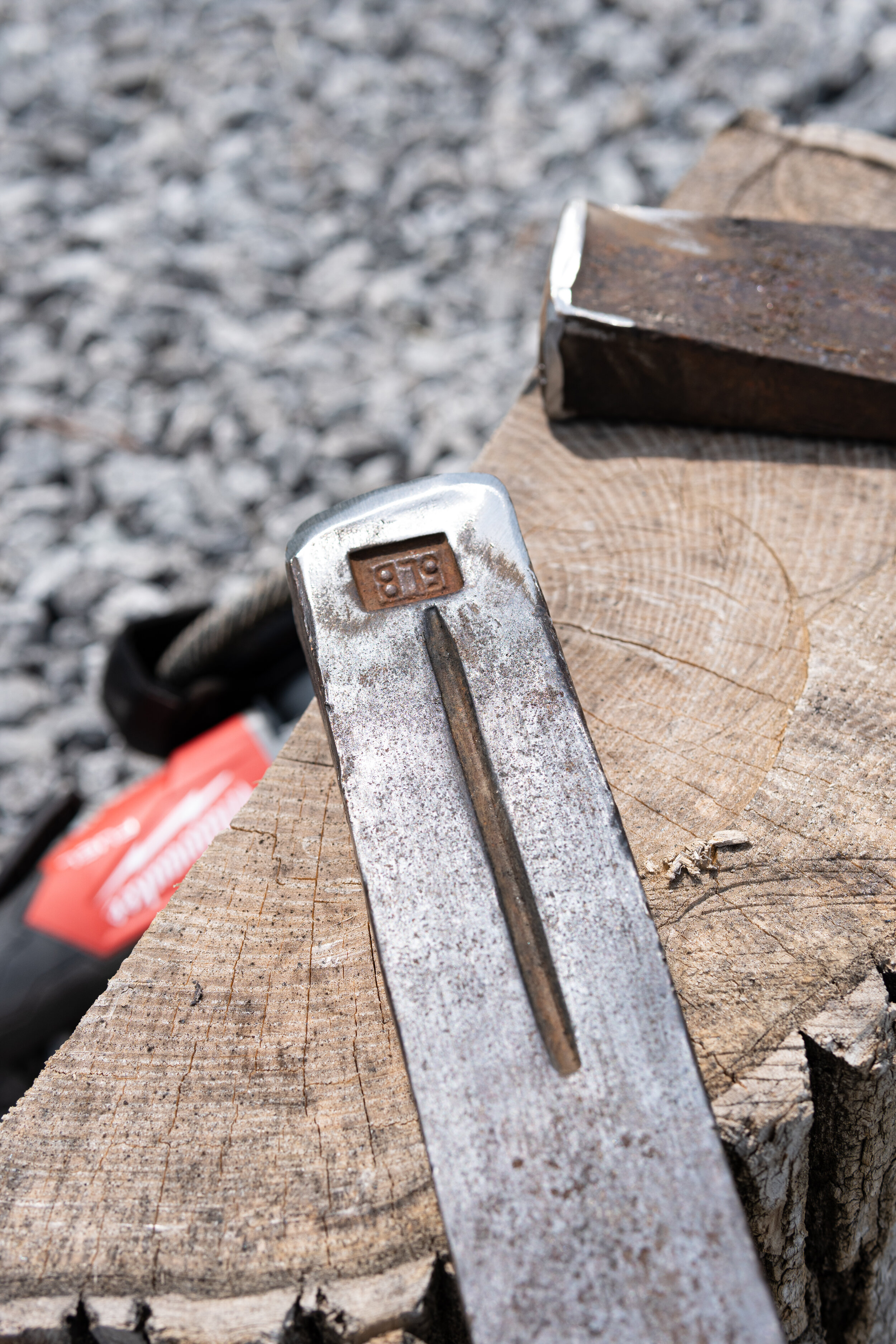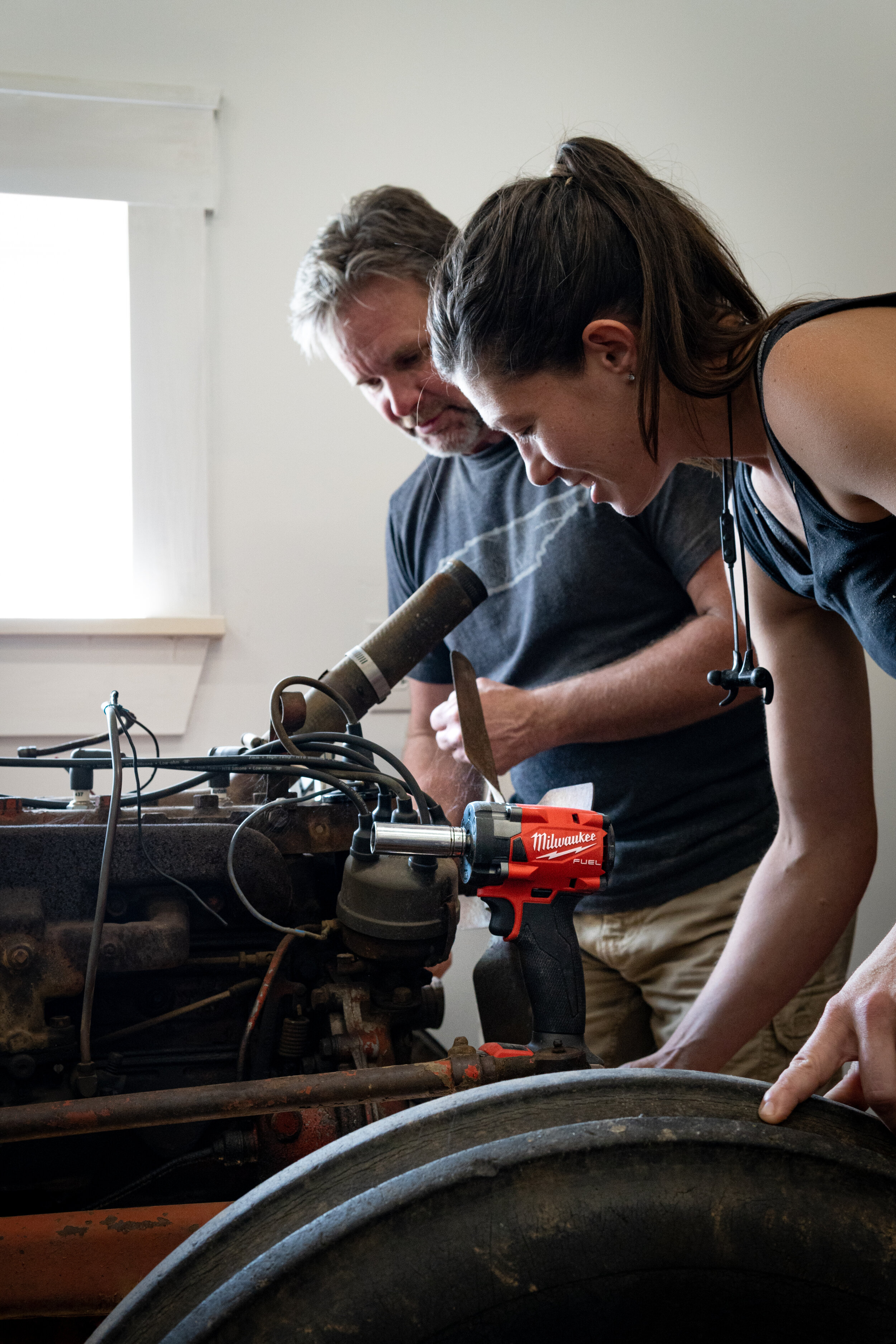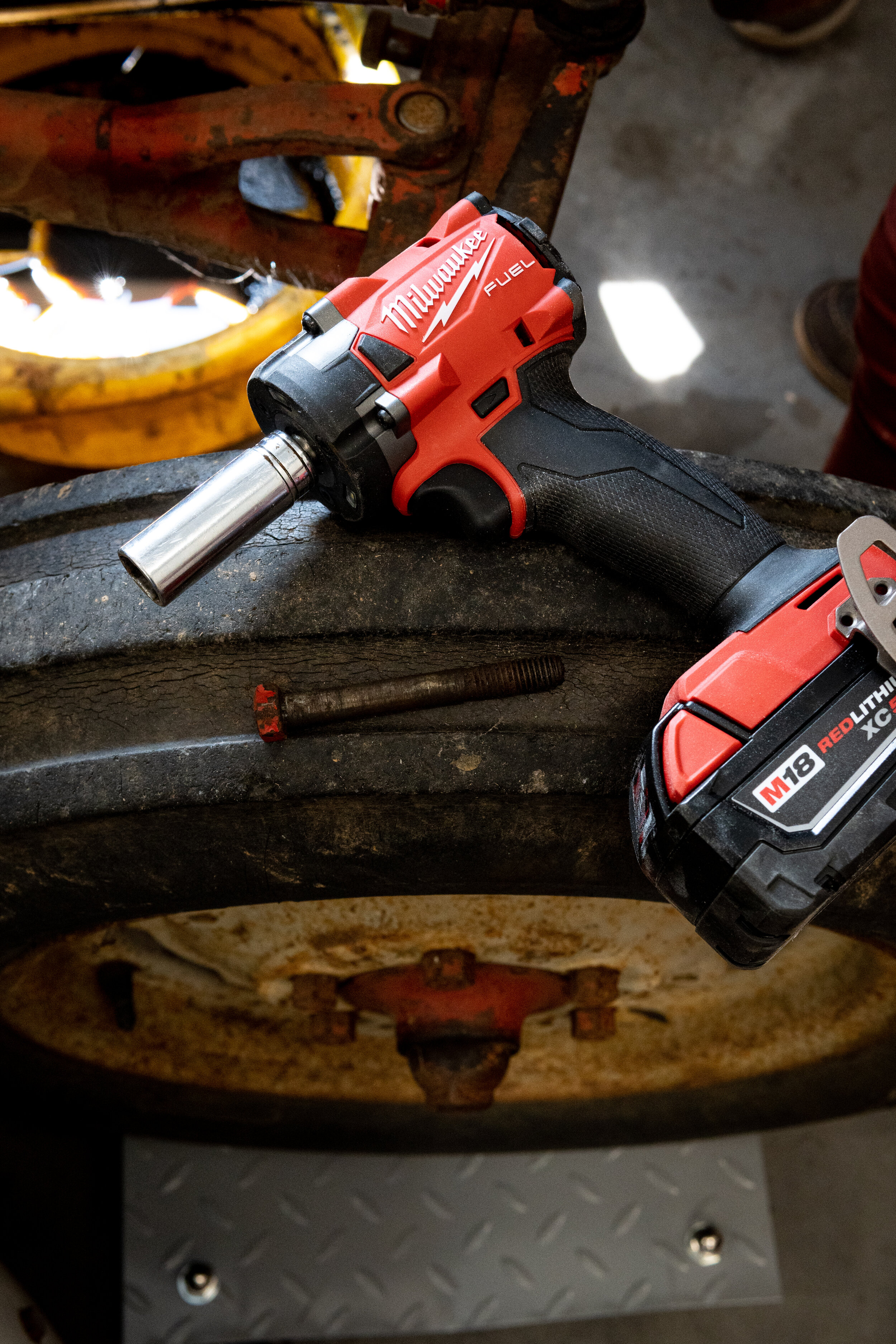Safety and my Favorite Battery Operated Tools
This review was created as part of a paid affiliate program with the Home Depot.
My first order of business with this and every product review is a disclaimer: I am not a professional contractor. I am a farmer and a fine furniture builder. My goal in reviewing tools and products is to provide honest feedback based on my own use and experience with these tools to other regular folks like me- wanting to get their hands dirty, try new things, and get the best value for their hard earned dollars.
I’m no Safety Sally, but…
Life around the farm and in the shop is constantly presenting opportunities for the unexpected to happen.
This past weekend, for example, I had a little run-in with a rattlesnake that reminded me of the importance of safety and being aware of my surroundings. I’ve found that there are a few shortcuts I can take to make sure I do that, and one of those shortcuts is using battery operated tools.
Having something ready to grab, go, and use wherever and however needed makes little jobs that can keep me much safer WAY more likely to actually… happen.
Though I’m far from a Safety Sally, if there is an obvious, accessible way to make any of the potentially dangerous situations I find myself in on the regular even a LITTLE safer, I take them, because really, why not?
My Favorite Tool Shortcuts
One thing I use A TON is my battery-powered grinder. This is the perfect tool for removing the mushrooms that form on my splitting wedges.
Hitting these things with a sledgehammer over and over and over when splitting oak logs for chair parts, cherry and walnut logs for spoons, these things start to develop little mushrooms which can be super deadly if they suddenly snap off and ricochet into some soft bits nearby.
I’ve seen some pretty nasty eye and leg injuries from an errant mushroom bit on these wedges, so I try to keep mine trimmed up nicely.
My 23 gauge pin nailer also comes in super handy all the time when it comes to safety in the shop. Sticking together a quick jig or fixture to make a tablesaw or routing operation just a little safer is always worth the extra time.
My friend and mentor Greg and I have been working on a lot of mechanical projects around the farm recently, and this impact wrench is just the ticket for loosening sticky nuts and bolts, but far more importantly… tightening them!
A recent situation with some lost lug nuts and a tire flying off my truck while driving down the driveway gave me enough of a scare to make sure to regularly check that all-important bits are snugged down just the way they need to be, and this wrench does the job without being too rough and stripping things. Multiple torque settings help hone in on exactly the snugness you need.
Battery tools are safer and more convenient
Battery-operated tools offer a good bit of safety assistance simply because of the lack of cords to trip on and get caught up in. That’s doubly true with the pin nailer because there’s no air hose or noisy air compressor to worry about either.
Electric motors run a lot quieter than gas, which is not only safer because you can hear over the noise of the machine, but it’s also easier on your hearing, especially with long-term, repeated exposure.
This battery string trimmer offers all of the power of a gas engine without the annual maintenance, gas mixing, and I can safely use it around my animals, which is hugely important.
We’ve had some trouble with rattlesnakes on the farm recently, so keeping fence lines and walking areas neatly trimmed has become a priority. Having a tool I can just grab and go without needing to remember to buy gas or fiddle with a pull cord makes it a whole lot more likely that I’ll actually *do* the regular trimming that will keep my animals safe.
Being able to cut the power cord also offers tools incredible versatility and portability, something that is hugely important, especially for farmers like me, who tend to have 10,000 projects going on in 10,000 places at all times. To lose the cords, the need for a close power supply and to ditch a huge portion of the small engine maintenance and 90% of the noise from both in favor of brushless, battery motors are a no-brainer for me.
A HUGE added safety feature that comes with the battery-operated angle grinder is the almost complete lack of wind-down time when the power is cut. Traditional grinders, circular saws, and other spinning-bladed tools will continue to spin for 10-30 seconds after the trigger is released, which is definitely less than ideal because people aren’t always super conscious of what’s happening after they’re done using a tool and put it down. A spinning blade is always a danger, but especially so when someone doesn’t expect it to be spinning.
These battery motors, on the other hand, stop spinning within milliseconds of releasing the trigger, making them much, much safer.
So which brand do I recommend?
If you’ve seen much of my online content, you’ve likely seen a lot of red tools in my collection. There are three main reasons for this.
I tell everyone asking for tool advice to pick a battery platform and stick to it. Milwaukee offers the largest selection of construction-grade tools that I regularly have reason to use both on the farm and in the shop on a single battery platform.
Their tools are rugged and well-made. In the process of testing for reviews and real-life happening, I’ve dropped them off ladders and scaffolding, run them over with tractors, left them out in the rain for weeks on end, the donkeys have covered them with slobber… you get the idea, and they’ve held up amazingly well. Three years in on this platform and I’ve only successfully broken one tool, a drill that I dropped from 45 feet in the air while on a scissor lift. It hit a rock at just the right angle and snapped in half. Ironically, I was able to fix it with superglue, and it still works today.
There were two tools that originally sold me on the Milwaukee tool platform, the 18v Chainsaw and the larger, more versatile older brother of the string trimmer I’m reviewing today, the string trimmer with interchangeable heads (including a pole saw attachment).
Making the best choice for YOU
If you’re in the market for some new tools, the best advice I can give is to pick one platform and stick to it. Though it seems counter-intuitive, saving up and buying the best tool you can afford at the outset, with the intention of keeping and using it long-term rather than buying cheap and replacing it is cheaper in the long run.
Better tools have a higher resale value than cheapo’s, so investing in things that hold their value keeps more junk out of the landfill and gives you more options if you change your mind too.
If you want to compare and contrast tools, Home Depot’s website has tons of reviews and comparisons. You can also visit your local Home Depot store to see/touch/hold many of these tools in person to get a better feel for what you’re getting.
Happy tool hunting!
Be sure to check out my other tool reviews on the blog here.

